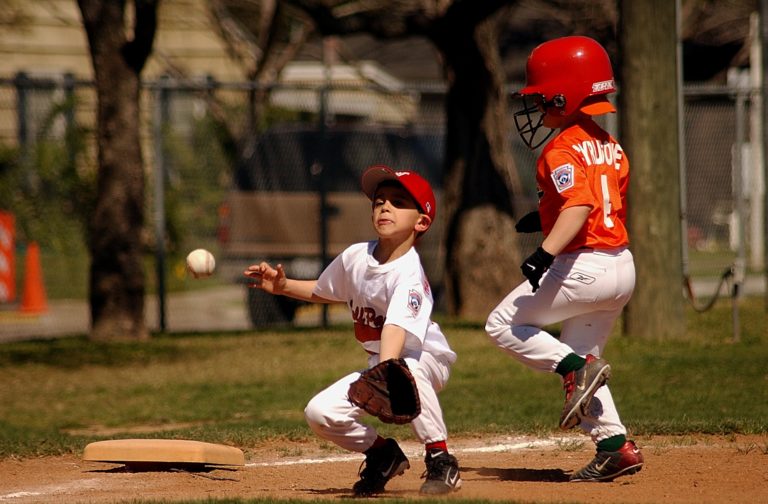Did you know that Little League has deep roots that extend as far as baseball’s history itself? Little League, like the sport of baseball, has been around since the 18th century.
It wasn’t until later on that baseball pin trading became popularized. Pin trading is a great way for the community to connect with local teams. It’s also a fun activity that allows every player to feel special and part of a team.
There is etiquette to trading that interested parties should know about. Keep reading to learn about the ins and outs of pin trading in baseball.
Display Pins
At a tournament, the first thing you’ll want to do is display the pins you are willing to trade.
If you have a lot of pins, you might want to show them all off. However, people will see these pins and assume you want to trade them so only show off the ones you are willing to let go of if a trade opportunity arises.
No one should reach out and touch the pins you have. This is the same etiquette you should follow while you are looking at other collector’s pins.
Some pin collectors will use tri-fold cardboard to display pins, but this is more common at trading events rather than tournaments.
Start a Conversation
Pin trading in baseball isn’t for the shy. If you don’t start a conversation, you’ll be waiting around for someone to approach you, which may or may not eventually happen.
If you notice a pin from a distance, decide whether or not you have a pin of similar value that you can trade it for. If you are new to pin trading, you might need help with the valuations.
Take a few minutes to understand the pin’s value so that you don’t offer a lesser pin during a trade.
You can approach a pin holder to ask what they believe is a fair value. Pin collectors are often patient and passionate about their pins, so they won’t be afraid of going into detail.
This is a great way to learn about the history of a pin. If you find that you don’t have enough to trade, you’ll still have made a connection with a collector that you can connect with in the future.
Don’t Interrupt
Once you start a conversation with a trader or collector, don’t interrupt them while they are sharing information about their pins. Likewise, don’t interrupt if someone else is talking to them. Wait your turn!
Interrupting a trade is bad etiquette and can put you in a negative spotlight among other traders.
Trading pins should be an enjoyable experience. Don’t argue or get upset with someone if you don’t make the trade that you are hoping for.
Keep your cool and stay friendly when trading baseball pins, even if you feel disappointed with the outcome.
Tournament Trading
There are venues and tents set up for pin trading in baseball but some trading opportunities occur between players on the diamond. It’s been a Little League World Series tradition to trade pins after games for decades.
Players can line up after the game for handshakes before getting ready to trade commemorative pins. The players get to go home with a memento from the game.
If you go deeper into the tournament, you’ll go home with more baseball trading pins.
In certain tournaments, veteran pin traders will barter with the players. Collectors like this are typically well-known and have spoken with parents or coaches for approval to barter ahead of time.
In addition to tournaments, players and others groups of people can get and trade pins at single games. Social events, like end-of-season parties, are also great environments for trading baseball pins.
Who Can Trade Pins?
There is some confusion about who gets and can trade baseball pins. Baseball pins are usually traded by those that want to collect pins and commemorate youth baseball.
Since it’s a social activity, there are a lot of groups that collect and trade baseball pins, such as:
- Youth baseball players
- Siblings of baseball players
- Coaches
- Families
- Sponsors
- Businesses
Some youth teams will order extra pins for siblings, coaches, parents, etc., knowing that other groups of people enjoy getting involved with the sport. Cooperstown trading pins is an excellent place for ordering baseball pins.
Sponsors and businesses that want to support a local youth team may use baseball pins for promotions and decorations.
Storing Baseball Trading Pins
Once you have baseball trading pins, you need to properly store them to protect and maintain them. Some teams provide pin storage cases with information on it as gifts for the players.
If you want to purchase your own method of storage, any of these options can help keep your pins safe:
- Zippered pouch
- Bead box
- CD case
You can get creative with your storage methods. As long as the pouch, box, or case closes, you don’t have to worry about losing your pins.
Pin Trading: Start Your Collection Now!
Pin trading in baseball has been a staple of the sport for years. It allows not only the plays to feel more connected to the sport, but it builds a community when parents, siblings, coaches, and businesses get involved.
If you want to start trading baseball pins, use this guide as a reference for the etiquette that you should follow.
For more informative blogs on various topics like this, check out the other articles on our website.
